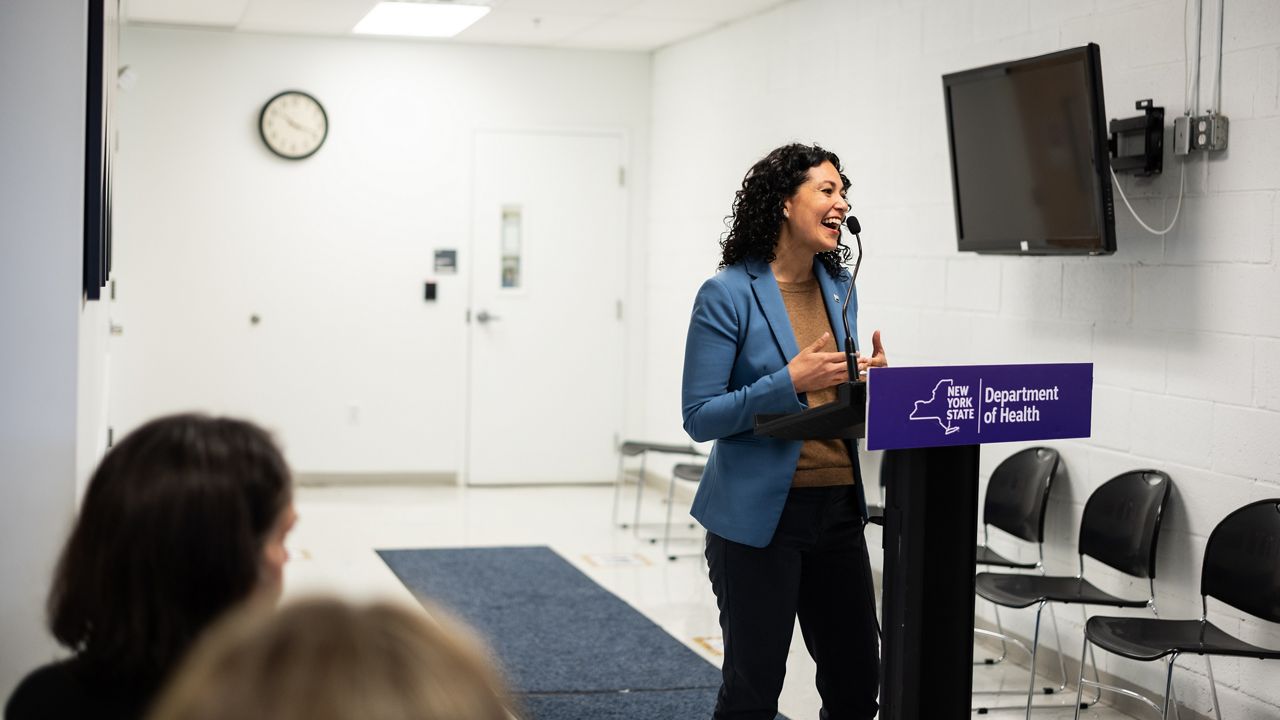The United States Department of Agriculture's Deputy Secretary Xochitl Torres Small visited Syracuse’s Women, Infants and Children Center to highlight the importance of the program and the need for increased funding at the federal level.
“Every year, Congress funds WIC, but this year, with the increasing continuing resolutions, there’s been uncertainty about making sure that WIC is fully funded,” Torres Small said.
WIC is a program for mothers, infants and children funded through the Farm Bill, which was set to be renewed this year but has been extended through the end of 2024. However, there are concerns that everyone who needs access to WIC will not be able to obtain the service.
“They funded the same amount as previous years and that is making states like New York really nervous about whether they’ll be able to provide services for all of the people who are eligible to receive this investment in their kids,” she said.
House Republicans’ 2024 agriculture appropriations bill would short WIC $800 million in funding that is needed to continue serving the current number of participants and would leave 1.5 million pregnant, postpartum and breastfeeding participants and 3.5 million children without benefits, according to the Center on Budget and Policy priorities.
Kristina Schoonmaker, the WIC program coordinator at the center in Syracuse, said they have more than 9,000 participants in Onondaga County.
The poverty level among people under the age of 18 is 37.1% in the city of Syracuse, according to the U.S. Census Bureau.
“I believe Syracuse is second in the nation for our size of city for poverty, so with it having such a high poverty rate, the WIC program is essentially for providing the services that we do for those people that are eligible,” Schoonmaker said.
Some of the services the center provides include nutrition education, benefits for nutritious foods, breastfeeding support and referrals to other community, social and health services. The center has seen an 11% increase in WIC usage since before the COVID-19 pandemic, Schoonmaker said.
“One thing that has changed with WIC is there’s flexibility with doing appointments now, so people have the option of doing their appointments here in person at our office or doing their appointment remotely by phone,” she said.
This has helped remove some barriers such as transportation or taking time off of work to attend the appointments, Schoonmaker said.
Onondaga County Health Commissioner Kathryn Anderson said the county is proud of the high levels of participation in the program with upward of 95% of the target community being served.
“From pregnancy through a child’s early years, our youngest community members are getting a healthy head start thanks to the nutritious foods, education, guidance and support our WIC staff provide,” Anderson said.
In addition to the flexibility in appointments, there has been an increase in funding for fruits and vegetables for participants.
“The past few years, they’ve significantly increased the amount of funding for fruits and vegetables that we can provide. So, for children, it went from $9 a month to $26 a month and for our pregnant moms, it went from $11 to $43 per month and our families are really appreciative of that,” Schoonmaker said.
Torres Small thanked the WIC staff for their dedication to helping expecting and new mothers and their children.
“Their dedication directly results in better life outcomes for the children and babies that benefit from their services. We know that providing children and families access to healthy, nutritious food means better health outcomes, higher cognitive functions and a bright future for our nation,” she said.



